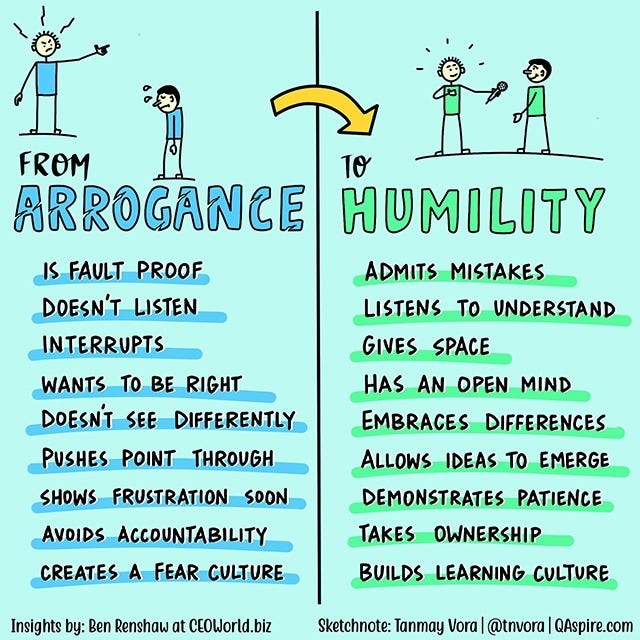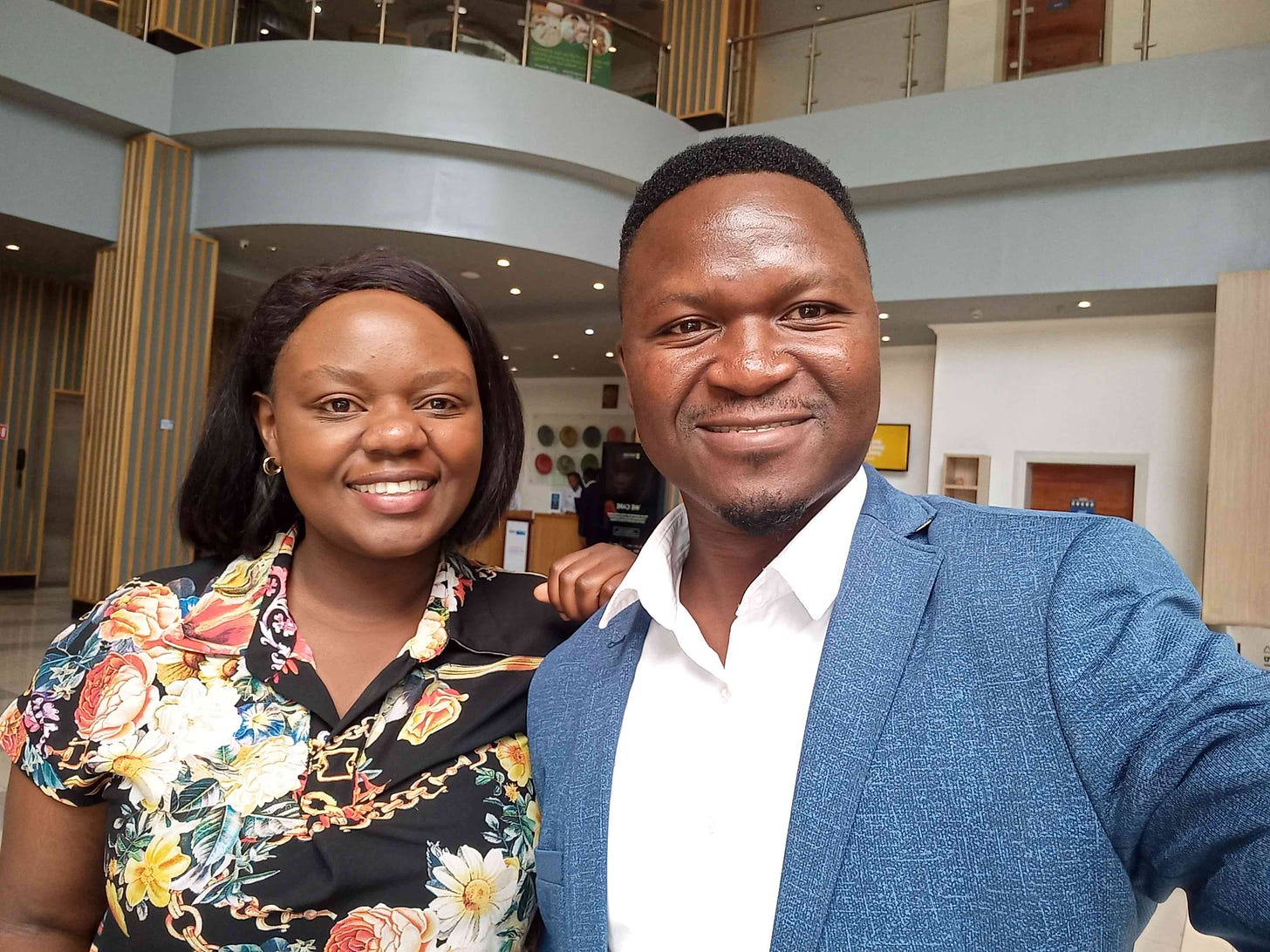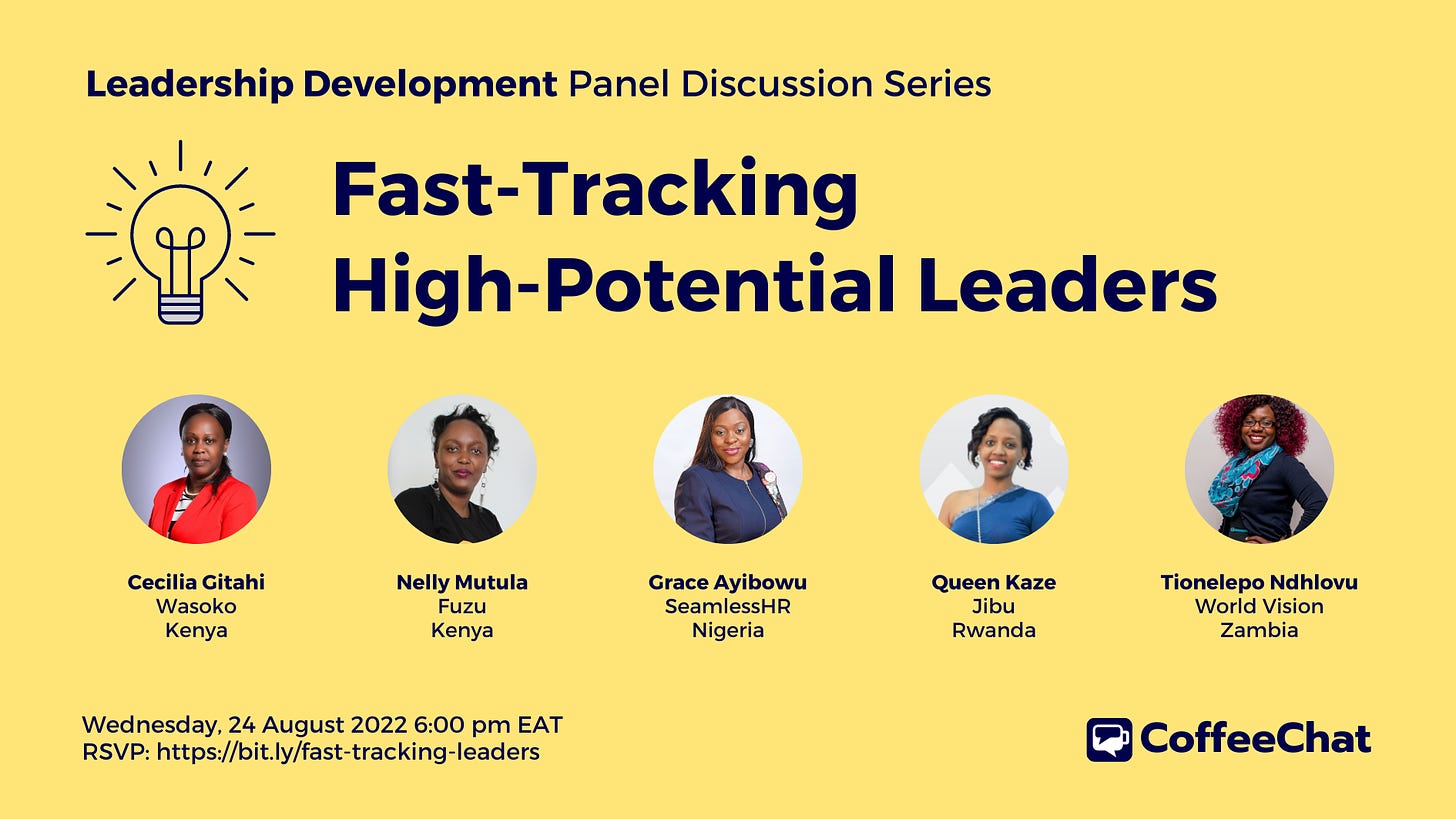Hi everyone, here’s what we have for you this week:
Our first-ever in-person “coffee chat” took place this month! Dinah Njuguna and Collins Otieno managed to meet up in Kigali for their monthly peer coaching match and documented the occasion for us.
Our first panel discussion yielded lots of insights. Watch the recording to hear leaders from Wasoko, Jibu, Fuzu, SeamlessHR and World Vision Zambia speak on how they identify and accelerate high-potential leaders.
Does humility hold you back? We share a thoughtful article from Anne Wafula Anderhofstadt, a professional coach from our CoffeeChat network.
Read on for more details…
CoffeeChat’s first-ever in-person peer coaching session
CoffeeChat’s Peer Coaching Network pairs members each month with another manager from a different company for a two-way peer coaching conversation using the GROW framework to guide their discussion. Often pairs are between managers from different countries. Dinah Njuguna used her trip to Kigali last week as an opportunity to meet up with Collins Otieno, her monthly match for August who is currently based in Kigali, for their peer coaching session. Dinah serves as the Investment Manager for Africa at Kiva. She previously worked at Endeavor and has over 7 years of experience investing in technology companies (Series A-C), MFIs and banks in Africa. Meanwhile, Collins is the Finance Manager at Bboxx, a next-generation utility company. He previously held finance and audit management roles at Pula, Davis & Shirtliff and KPMG.
Recording: Fast-Tracking High-Potential Leaders
Our first panel discussion yielded lots of insights. Watch the recording to hear leaders from Wasoko, Jibu, Fuzu, SeamlessHR and World Vision Zambia speak on how they identify and accelerate high-potential leaders. Here were some of the highlights:
Cecilia Gitahi, Head of Learning & Development at Wasoko, shared how she looks for “comfort with ambiguity” to identify high-potential leaders, and the importance of differentiating “high-potential” vs “high-performing” leaders.
Nelly Mutula, Head of People Ops at Fuzu, shared about how companies can and should hire junior talent for both their current skills and ability to grow alongside the growth of their company, how the manager-to-team ratio should reflect how much a company wants to develop those teams, and that individuals should make sure they develop their own personal brand.
Grace Ayibowu, Head of Human Resources at SeamlessHR, shared how her company insists that every team member is always on an individual development plan to focus their professional growth, and how companies should not ignore internal transfers as a way to fill open roles.
Queen Kaze, Global Human Resources Manager at Jibu, shared about the need to seek frequent 360 feedback to identify and rapidly develop junior talent, and how HR should provide visibility into career growth pathways within their company.
Tionelepo Ndhlovu, Learning and Development Manager at World Vision Zambia, shared how HR leaders should find ways to empower their front-line managers to take ownership of the leadership development of their teams, that leaders should not assume that everyone necessarily wants to grow into managers, and how L&D has a responsibility to show junior staff the tools to develop themselves.

On being humbly impactful
Humility is often misunderstood for weakness. As, somehow, a lack of confidence.
A few months ago, I had a conversation with a friend who is considered a powerful woman … something she agrees with. She also ‘likes things’ (as we say in South Africa), meaning she likes a good handbag, a good shoe, a nice shiny ring, that sort of thing. I told her that I viewed her as a humble person. She (vehemently) disagreed. We went on to share our definitions of humility, and to her, she understood it as an undervaluing of oneself.
According to etymologeek, a website that shows the origin of words, the Latin origin of the word humility is humus, which translates to ‘ground’ or ‘earth’. I find a connection between this translation and the description of humble people as per an article published by forbes.com. Humble people consider themselves as part of a whole. They are grounded in that their focus is not on themselves, but on being part of a whole. The meaning is twofold:
They appreciate the interconnected dynamics of a situation. They pay attention to the interplay of different variables and spend time observing, listening and learning. They are grounded enough to respect the complexity of the whole in which they are part of, as opposed to being the centre of.
After observing, listening and learning, they formulate a grounded opinion and voice it. They embrace and utilize their rightful space in the whole. They speak their mind. They make a contribution. They are comfortable in doing this because their focus is not on self-promotion, but on the work at hand, on achieving effective results. Because of this, they are not held back by fears, such as that of being wrong. They know they could be wrong and are open.
I came across a word in an article in the Harvard Business Review. The word is ‘humbition’, which means ‘humility in the service of ambition’. Ambition to have an impact. This word helps me explain the essence of my article: that humility also involves valuing yourself (actually, I think that it demands that you value yourself). Valuing yourself enough to accept that you can have an impact, and then embracing humility through your journey to achieve that.
There’s an assumption that when one is in a managerial or leadership position, they are successful if they are good at telling people what to do, forcing people to do things, and are attention seeking. This is discussed in an article on the Wall Street Journal, which also explains how “such leaders tend to ruin their companies because they take on more than they can handle, are overconfident and don’t listen to feedback from others.”
‘’Humble leaders can also be highly competitive and ambitious. But they tend to avoid the spotlight and give credit to their teams …They also ask for help and listen to feedback from others, setting an example that causes subordinates to do the same.’’ - Dr. Ryne Sherman, Chief Science Officer at Hogan Assessment Systems
Nekesa (true identity withheld) regards humility as one of her core values. However, at work, she experienced an internal conflict in that she struggled to understand how she could maintain this value and be firm at the same time. She would either back down too soon during discussions or, in cases where the person was much older or more knowledgeable, she would hold back her opinion, because she thought this was a way of being humble. As a result, the team she was part of made some mistakes that could have been avoided, or took too long to reach an effective solution. Internally, Nekesa felt that she was not utilizing her capabilities. After Nekesa unpacked the definition of humility, she understood that it is possible to be humble and firm at the same time. That, regardless of the situation, by stating her opinions in a way that was open and inviting for the discussions to mature, she was acting in service of humility.
By the way, I am Nekesa. That story is about me.



